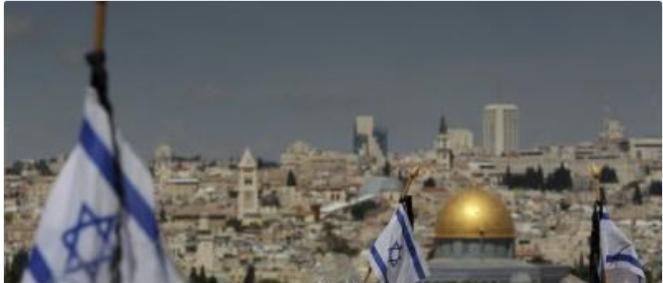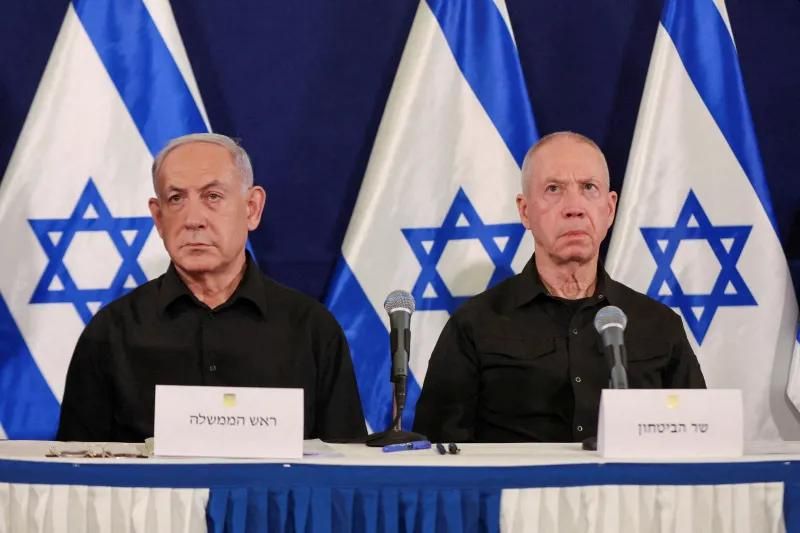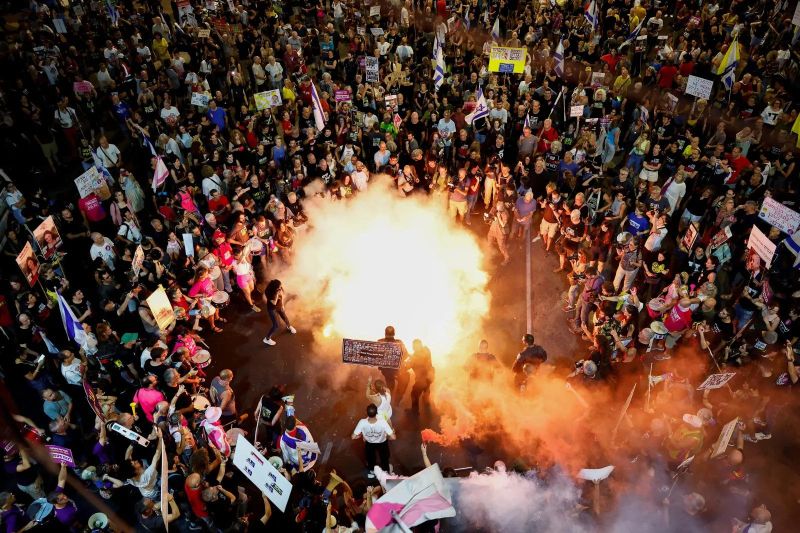By Eric Vandenbroeck and co-workers
Israel’s Hidden War
In August, Ronen Bar,
the head of Israel’s general security service, the Shin Bet, wrote a remarkable
letter to Prime Minister Benjamin Netanyahu and Israeli cabinet ministers. The
letter didn’t get much attention in Israel or abroad, but it went to the heart
of the crisis that has afflicted the country since the October 7, 2023, attack
by Hamas. Bar warned that intensifying attacks by Israeli settlers against
Palestinians in the occupied West Bank, which he called “Jewish terrorism,”
challenge “Israel’s national security” and are a “large stain on Judaism.” He
described a trend in which “hilltop youth” (the term used in Israel for
extremist settlers, although some of these militants are long past their youth)
in the West Bank are not only assaulting Palestinians but also clashing with
Israeli security forces—all with the backing of senior members of the
government. The settler militias had gone from “evading the security forces to
attacking the security forces,” Bar wrote, “from cutting themselves off from the
establishment to receiving legitimacy from certain officials in the
establishment.”
Over the past year,
events in the West Bank have been obscured first by Israel’s ongoing offensive
in Gaza and now by the war’s escalation in
Lebanon and Iranian strikes on Israeli territory. But since October 7,
2023, the UN has recorded over 1,400 incidents of settler attacks in the
occupied territories (ranging from vandalism to assault, arson, and live fire)
that resulted in injury or property damage and led to the displacement of 1,600
Palestinians from their homes, an uptick after an already record-breaking year
of settler violence in 2023. Bar’s intervention in the summer came as Israeli
officials in the defense ministry and the Israel Defense Forces (IDF) warned
that the West Bank was on the verge of an explosion that could cause hundreds
of Israeli fatalities in a new conflagration in Israel’s multifront war.
How Israel conducts
itself in the West Bank has implications that go well beyond the fate of
Palestinians. The contest that pits Israel’s security establishment against the
ascendant far right and its settler allies is not over whether Israel should
use force in Gaza, stop occupying the West Bank, or make concessions to help
find a solution to the decades-old conflict. It’s a clash over the security of
the Israeli state, which for many Israelis is a battle over its identity.
Israel could heed the warnings of security officials such as Bar or it could
continue to be guided by the imperatives of the far right. The latter course
will cause more bloodshed, ultimately hurt Israel’s standing and support in the
West, and lead to further international isolation and even pariah status. Many
Israelis who still view their country as secular, liberal, and democratic see
the struggle against the extreme right as existential, with ramifications for
every level of governance and Israel’s foreign relations. This battle will decisively
shape Israeli politics and security in the years to come.

A Widening Rift
The fault line
between the security establishment and the far right can be traced back to the Elor Azaria affair in 2016, when Azaria, an IDF soldier in
the occupied city of Hebron, executed a Palestinian assailant after he already
lay on the ground wounded by a gunshot and no longer posed a threat. At the
time, right-wing politicians, including Netanyahu, came to Azaria’s defense,
and some even called for him to be pardoned, directly contradicting then IDF
Chief of Staff Gadi Eisenkot’s statement that Azaria’s actions ran counter to
IDF norms. The incident not only revealed a growing divide between the army and
government but also exposed the strength of the settler movement in Israeli
politics. Azaria was initially charged with murder, but that was later reduced
to manslaughter, and he served nine months in prison.
Israel’s top security
officials, who are tasked with preventing and countering violence against
Israelis, are raising the alarm, asserting that sections of Israel’s political
right are working directly against the country’s own interests. They point specifically
at Bezalel Smotrich—the religious nationalist finance minister who represents
the radical settler movement, who through another position in the defense
ministry has de facto control over civilian affairs in the West Bank, and who
was arrested and interrogated in 2005 on suspicion of plotting to blow up a
highway to protest Israel’s withdrawal from the Gaza Strip—and Itamar Ben-Gvir,
the minister in charge of the police, who has been convicted numerous times for
inciting racism and for his support for a Jewish terrorist group. Both live in
West Bank settlements, promote the territory’s annexation, and, after October
7, have advocated resettling Gaza with Israeli Jews. Ben-Gvir has called for
the dismissal of both Bar and Defense Minister Yoav Gallant for their failures
to prevent the October 7 attack and their support for a hostage release and
cease-fire deal with Hamas in Gaza.
The growing clash
between the far right and the security establishment is “unprecedented,” in the
words of a former top Israeli intelligence official. It is rooted in
Netanyahu’s effort to stay in power by tying himself to the far right and
blaming the military and intelligence apparatus for October 7, while denying
his responsibility. More than a year on, Netanyahu still refuses to establish an independent state
commission of inquiry into the murderous Hamas rampage. But beyond the blame
game, there is a fundamental gulf between, on the one hand, Jewish ideologues
intent on formalizing Israeli control of the occupied territories and, on the
other, veteran security commanders deeply involved in the day-to-day operations
of maintaining Israel’s security and communicating with U.S. counterparts. The
latter are part of a military establishment that has been traditionally identified
with Israel’s secular, liberal democratic order, determined to at least keep up
the appearance of abiding by the rule of law. The former has become
increasingly hostile to the army—an extraordinary development in a country
whose military has long been sacrosanct and is mired in its longest and most
complex war since Israel’s founding, in 1948.
Flash Points And Provocations
The clash concerns
not just the far right’s ambitions in the West Bank but also Israel’s dilemma
over what to do with Gaza. The security establishment, led by Defense Minister
Yoav Gallant, has backed a hostage deal and cease-fire for months, aligning itself
with the Biden administration. Gallant and others openly criticize Netanyahu
for failing to present an endgame for the Gaza war that would offer a realistic
alternative to Hamas rule. Gallant described in August
Netanyahu’s desire to achieve “total victory” as tantamount to “rhetorical
nonsense.” Netanyahu bristled, accusing Gallant of adopting an “anti-Israel
narrative.” Their dispute predates October 7: in March 2023, Gallant warned
that the government’s bid to overhaul the judiciary, a controversial proposal
that prompted combat reservists to threaten not to show up for military duty,
was endangering national security. Netanyahu fired him but reversed his
decision a few weeks later amid mass public protests. In their latest rift,
Netanyahu canceled Gallant’s planned October trip to the United States to
coordinate Israel’s retaliation against Iran, stipulating that a call between
Biden and Netanyahu must come first.
Last month, the
cabinet voted to keep the Israeli army deployed indefinitely in the Philadelphi
corridor, a narrow strip along the border between Gaza and Egypt. Netanyahu had
neglected to mention this condition in negotiations about a cease-fire deal in
May, and both Hamas and Egypt oppose an Israeli military presence in the border
zone. Many Israelis interpreted the cabinet vote as Netanyahu deciding to
destroy the possibility of a deal, indicating his preference for continued war
in Gaza as a way to maintain the support of the government’s far-right flank.
The Israeli right wing bitterly opposes a cease-fire and even, in the view of
some of its leaders, wants to return settlers to Gaza. By contrast, Gallant and
the security establishment insist that Israel can withdraw from the Philadelphi
corridor as part of a deal—and recapture it later if need be. Shortly after the
September vote, Israelis learned of the apparent execution of six young
hostages by Hamas as the IDF closed in. The killing outraged an Israeli protest
movement desperate for a hostage deal, triggering a half-day labor strike and
some of the largest demonstrations in Israeli history, with an estimated half million people in Tel Aviv alone demanding that
Netanyahu reach a deal to release the remaining hostages. With the main fronts
now shifting to Lebanon and Iran and another Israeli offensive now happening in
northern Gaza, a hostage deal appears out of reach. An October report in the
Israeli newspaper Haaretz outlined the frustration of senior
defense officials, who have accused the government of effectively sacrificing
the hostages in pursuit of the annexation of Gaza.
Netanyahu
and Gallant in Tel Aviv, Israel, October 2023

Another driver of the
clash between the security establishment and the government, or at least its
far-right elements, is the deteriorating status quo at the Holy Esplanade—the
sacred complex in occupied East Jerusalem home to the al Aqsa mosque and the Temple
Mount. It has been a major and repeated flash point in the past. Ben-Gvir, in
his capacity as national security minister, has on several occasions undermined
the fragile status quo at the site by encouraging Jews to pray there, which
they are now doing in increasing numbers. The security establishment has
condemned his actions as dangerous provocations that inflame not just
Palestinians but also provoke Jordan and the wider Muslim world. The complex is
set to become an even more incendiary flash point: a growing far-right
messianic movement, once on the fringes, is making its way into the mainstream
with the aim of establishing a Jewish monopoly over the entire compound,
conducting animal sacrifices there, and rebuilding the temple.
The confrontation
between the far right and the security establishment continues unabated despite
a rapidly deteriorating situation in the West Bank and beyond. Since October
7, Israel has prevented 150,000 West Bank Palestinians from working in Israel.
It has also withheld Palestinian funds from the PA—under the terms of the Oslo
Accords, the Israeli government collects taxes from Palestinian territories and
transfers the revenue to the PA—as part of Smotrich’s attempt to weaken the
Palestinian government and consolidate Israel’s control of the West Bank. The
severe damage to the West Bank economy caused by those policies directly
undermines what security officials see as their ability to maintain a modicum
of order since Palestinian unemployment and immiseration only increase the
likelihood of violence. In vain, the security establishment has implored the
Netanyahu government to release tax revenues to the PA and resume issuing work
permits for West Bank Palestinians employed inside Israel. When it comes to the
West Bank, the government remains perilously in thrall to those far-right
ministers who want nothing less than the territory’s annexation and are
willingly provoking further strife and chaos.
Protesters demanding a hostage deal with Hamas, Tel
Aviv, Israel, October 2024

Pyrrhic Victories
The government is not
listening to either the security establishment or to protesters in the streets,
leaning instead on its strong base that supports its approach in the West Bank
and the multifront war more broadly. The question is whether outside pressure
can get Netanyahu to change course. Washington’s nearly unconditional support
for Israel, even as settlements expand across the West Bank, has contributed to
the impunity with which hard-line settlers can
operate in the occupied territory and their growing influence within Israeli
institutions and politics. The United States has started to sanction violent
settlers and some groups that fund the settlement enterprise, although it has
not yet singled out Ben-Gvir and Smotrich or the entities that are integral to
the settlement project, including quasi-governmental groups and regional
settler councils. Nor has Washington placed serious limits on the delivery to
Israel of arms that might end up in settlers’ hands or used its supply of
weapons to the Israeli war effort as leverage to press for a cease-fire in
Gaza.
To be sure, it’s
unclear whether stronger measures from Washington could reshape Israeli
politics. Netanyahu would still likely rely on the far right to stay in power
even if pressured by the United States, and Israeli society is largely
aligned with his posture of rejection of any concession to Palestinians. But
even a partial rift with the United States could affect the country’s ability
to prosecute the war. A tougher stand from the United States would also show
more clearly which side U.S. officials are prepared to take in the struggle
between two visions of Israel: the far right’s ideological drive to seize the
West Bank and exterminate the possibility of Palestinian statehood—in the
process making Israel less safe—or the security establishment’s more pragmatic
approach.

At the moment, the
escalation of the war in Lebanon, as well as Israel’s resolve to retaliate
against Iranian strikes, is obscuring the divisions regarding the West Bank.
But those differences form a critical fault line. If the far right wins out, as
currently seems likely, Israel will continue to dispossess Palestinians from
large swaths of the West Bank and build more settlements, pushing forward with
the piecemeal annexation that Smotrich has spearheaded. Together with
provocations on the Temple Mount, this trajectory almost guarantees a future of
increased violence and instability for both Palestinians and Israelis. Triumph
for the hard-liners could spell disaster for Israel, as a deepening culture of
lawlessness and chaos only further weakens the beleaguered mechanisms of
Israeli democracy.
For updates click hompage here